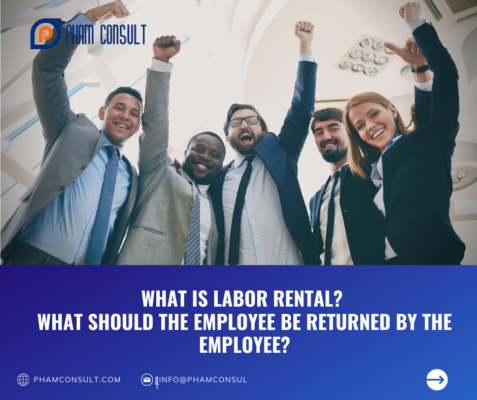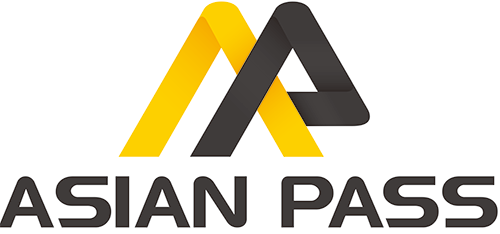In the current development situation of society, to meet the needs of its personnel, the employer has many different options and one of the forms that can meet the needs of the business is: through labor subleasing. Corresponding to each of the above relationships are different legal forms. Through this article, Pham Consult deeply analyzes the legal form of the relationship between the labor hirer and the labor subcontractor – that is, the labor subleasing contract.

1. How is labor sublease understood?
According to the definition in the Labor Code 2019, labor subleasing and outsourcing activities are understood as follows:
Labor subleasing means an employee entering into a labor contract with an employer who is a labor outsourcing enterprise, after which the employee is transferred to work and is under the management of the employer. employ other employees but still maintain labor relations with the employer who has entered into a labor contract.
2. Who pays the wages of the outsourced workers?
Pursuant to Article 56 of the Labor Code 2019 stipulates the rights and obligations of the outsourcing enterprise, specifically as follows:
Rights and obligations of the outsourcing enterprise:
In addition to the rights and obligations specified in Article 6 of this Code, the outsourcing enterprise has the following rights and obligations:
- Ensure to bring qualified workers in accordance with the requirements of the outsourcing party and the contents of the labor contract signed with the employee;
- Notify the employee of the contents of the labor outsourcing contract;
- Notify the outsourcing party of the employee’s curriculum vitae and the employee’s requirements;
- To ensure that the salary paid to the outsourced employee is not lower than that of the employee of the outsourcing party having the same qualifications, doing the same job or doing work of equal value;
- Make a dossier specifying the number of outsourced employees and the outsourcing party and periodically report it to the specialized labor agency affiliated to the provincial People’s Committee;
- Handling labor discipline for employees who violate labor discipline when the outsourcing party returns the employee due to violation of labor discipline.
Accordingly, the outsourcing enterprise must ensure that the salary paid to the outsourced employee is not lower than the salary of the employee of the outsourcing party with the same qualifications, doing the same job or a job of similar value. same treatment.
3. What rights and obligations does the outsourced worker have?
Pursuant to Article 58 of the Labor Code 2019 stipulates the rights and obligations of the outsourced employee, specifically as follows:
Rights and obligations of outsourced workers
In addition to the rights and obligations prescribed in Article 5 of this Code, the outsourced employee has the following rights and obligations:
- To perform work according to the labor contract signed with the labor outsourcing enterprise;
- Obey labor discipline and labor regulations; comply with the lawful management, administration and supervision of the outsourcing party;
- To be paid a salary not lower than that of the employees of the outsourcing party with the same qualifications, doing the same work or jobs of equal value;
- Complaints to the outsourcing enterprise in case the outsourcing party violates the agreements in the labor outsourcing contract;
- Agreement to terminate the labor contract with the outsourcing enterprise in order to enter into a labor contract with the outsourcing party.
Accordingly, in addition to the rights and obligations of the employee, the outsourced employee also has the following rights and obligations:
– Perform work according to the labor contract signed with the labor outsourcing enterprise;
– Obey labor discipline and labor regulations; comply with the lawful management, administration and supervision of the outsourcing party;
– To be paid a salary not lower than the salary of the employees of the outsourcing party with the same qualifications, doing the same job or doing work of equal value;
– Complaints to the outsourcing enterprise in case the outsourcing party violates the agreements in the labor outsourcing contract;
– Agreement to terminate the labor contract with the outsourcing enterprise in order to enter into a labor contract with the outsourcing party.
4. In what cases can the subcontractor return the subcontracted employee?
Pursuant to Article 57 of the Labor Code 2019 stipulates the rights and obligations of the outsourcing party, specifically as follows:
Rights and obligations of the outsourcer
- Notify and guide the outsourced worker to know his/her labor rules and other regulations.
- Not to discriminate in terms of working conditions for subcontracted employees compared to their own employees.
- Agreement with the outsourced employee to work at night and work overtime in accordance with the provisions of this Code.
- Agreement with the outsourced worker and the outsourcing enterprise to officially recruit the outsourced employee to work for him or her in the case of the labor contract between the outsourced employee and the outsourcing enterprise. labor has not ended.
- Returning the outsourced worker who does not meet the agreed requirements or violates labor discipline to the outsourcing enterprise.
- Provide the outsourcing enterprise with evidence of violations of labor discipline of the subcontracted employee for consideration and handling of labor discipline.
Accordingly, the outsourcing party has the right to return the outsourced worker who does not meet the agreed requirements or violates labor discipline to the outsourcing enterprise.
Thus, through the article on Pham Consult, it is clear that the labor subleasing relationship is essentially a tripartite relationship: the labor lessor (labor hirer), the sublease employee and the employee. outsourcing party (employee outsourcing enterprise). Hope this article will be helpful for your work.




 VI
VI